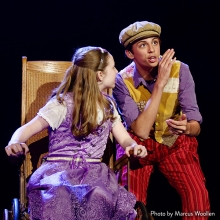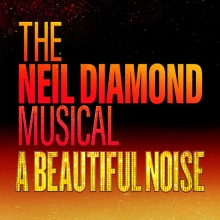Show History
History
Inspiration
After writing a number of popular songs, composer/lyricist, Sherman Edwards, began seven years of research on the American Revolution in the Morristown, New Jersey, Public Library in the late 1950s. He took another two years to write the songs and libretto for a musical about the signing of the Declaration of Independence.
When Peter Stone came on board to write the book, he concentrated on the arguments and intrigue that occurred during the Second Continental Congress. He took some historical liberties: the actual Declaration of Independence was signed by 56 people over a period of several months, not on July 4, 1776; Jefferson did return to Virginia to visit his wife; John Adams's cousin, Samuel Adams, was also a prominent delegate from Massachusetts. The changes were made to enhance the drama in a story for which the audience already knew the outcome. The finished show was an unconventional Broadway musical in many respects: there was no chorus of dancing women (there were only two women in the entire show), there was no intermission and some scenes (of which, there were only seven) had no music.
Productions
1776 opened on Broadway on March 16, 1969, at the 46th Street Theater. The cast included David Ford as John Hancock, William Daniels as John Adams, Ken Howard as Thomas Jefferson, Howard Da Silva as Benjamin Franklin, Paul Hecht as John Dickinson, Ronald Holgate as Richard Henry Lee, Betty Buckley as Martha Jefferson and Virginia Vestoff as Abigail Adams. The sets and lighting were by Broadway veteran, Jo Mielziner, and the costumes were by Patricia Zipprodt. The show ran for a total of 1,217 performances.
A very successful national touring production opened in San Francisco in 1970 and ran for over two years.
The London production of 1776 opened on June 16, 1970, at the New Theatre. The production starred Lewis Fiander as Adams, Vivienne Ross as Abigail Adams, Ronald Radd, Bernard Lloyd, David Kernan as Rutledge, John Quentin as Jefferson and Cheryl Kennedy as Martha Jefferson.
1776 was revived on Broadway by the Roundabout Theatre Company, opening on August 4, 1997, in a limited engagement at the Roundabout's home theatre, the Criterion Center, before transferring to the George Gershwin Theatre on December 3, 1997, for a commercial run. It closed on June 14, 1998, after 333 performances and 34 previews. The production was directed by Scott Ellis with choreography by Kathleen Marshall, and featured Brent Spiner as Adams, Michael Cumpsty as Dickinson, Pat Hingle as Franklin and Paul Michael Valley as Jefferson.
Cultural Influence
- In 1972, Jack Warner produced the film version of 1776 for Columbia Pictures. It is now available on videotape and laserdisc. Many of the people associated with the Broadway show were involved in the film version, including Peter Stone, Sherman Edwards, Peter Hunt, William Daniels, Howard Da Silva and Ken Howard.
- There have been several cast recordings, including the original Broadway cast (1969), the original London cast (1970), the British Studio cast (1970), the original motion picture soundtrack (1972) and the Broadway revival cast (1997).
Trivia
- Scene Three of 1776 holds the record for the longest time in a Broadway musical without a single note of music played or sung – over thirty minutes pass between "The Lees of Old Virginia" and the next number, "But Mr. Adams."
- A Director's Cut of the original film has been released on DVD. Both the look and sound of the original film have been improved through modern technology. Many cuts to the original film by the producer, Jack Warner, have been restored, including a musical numbers. Musical underscoring has been removed from several scenes without songs in order to strengthen the focus on dialogue. Bonus material includes commentary by director, Peter Hunt, and by Peter Stone, the book/screen writer. Among other topics, they discuss artistic liberties and anachronisms that were used to dramatize the events.
- The original Broadway production of 1776 was nominated for five Tony Awards and five Drama Desk Awards. The 1997 Broadway revival was nominated for three Tony Awards and three Drama Desk Awards.
- Sherman Edwards originally wrote a show about the Declaration of Independence on his own. That show was optioned by many producers, but Edwards always refused to let his libretto be rewritten by another writer. and that impeded its development. When producer, Stuart Ostrow, obtained the project, he approached Peter Stone to rewrite the book. Stone had been reluctant to return Ostrow's initial phone calls but he became enthusiastic after he heard the score. Ostrow convinced Sherman Edwards to allow Peter Stone write a new book for the show.
-
Composer/lyricist, Sherman Edwards, was a history teacher-turned-songwriter from Morristown, New Jersey. He spent ten years working on 1776.
-
Opening with a small advance sale, word-of-mouth and critical praise made 1776 the sleeper hit of of the late 1960s. It was a hit all over again when it was revived on Broadway in 1997.
-
John Adams and Thomas Jefferson both died on the fourth of July in 1826.




